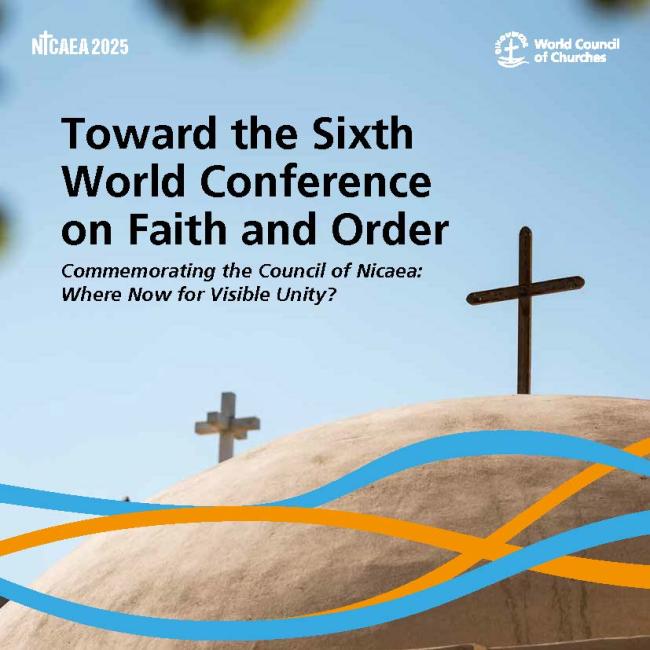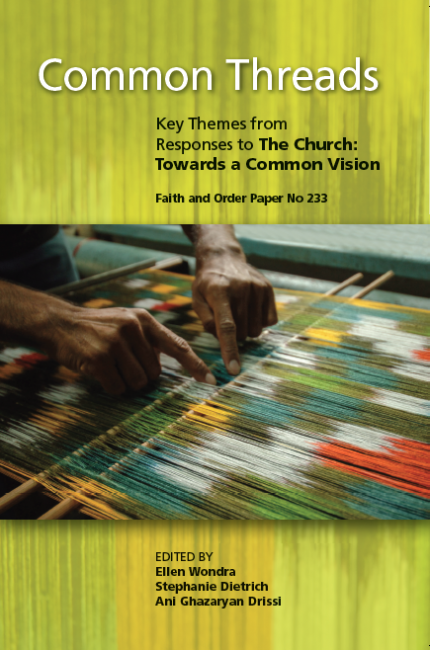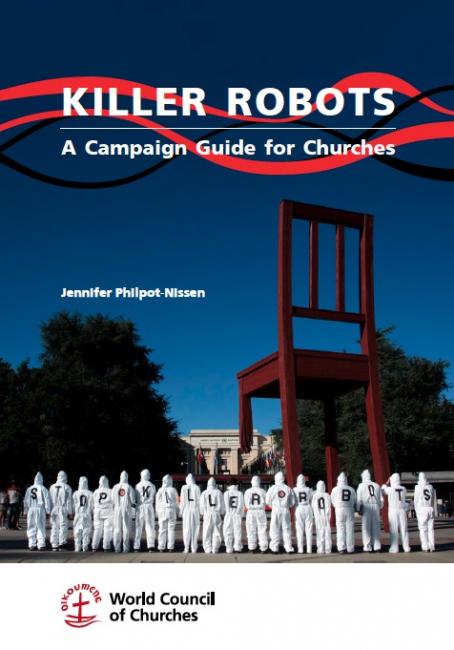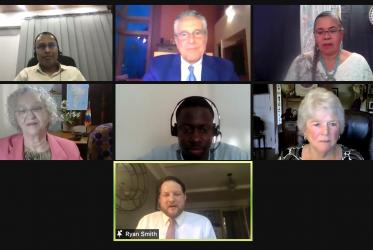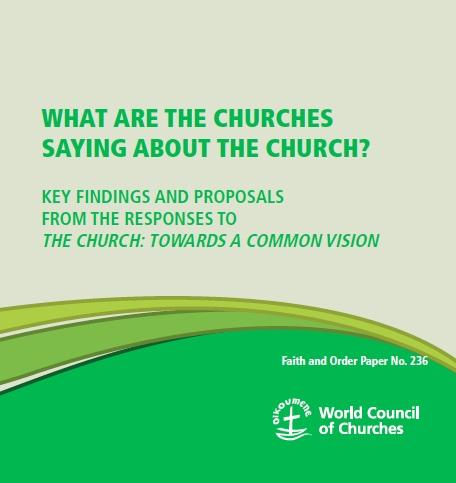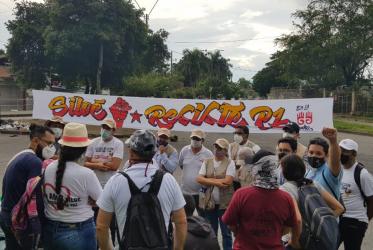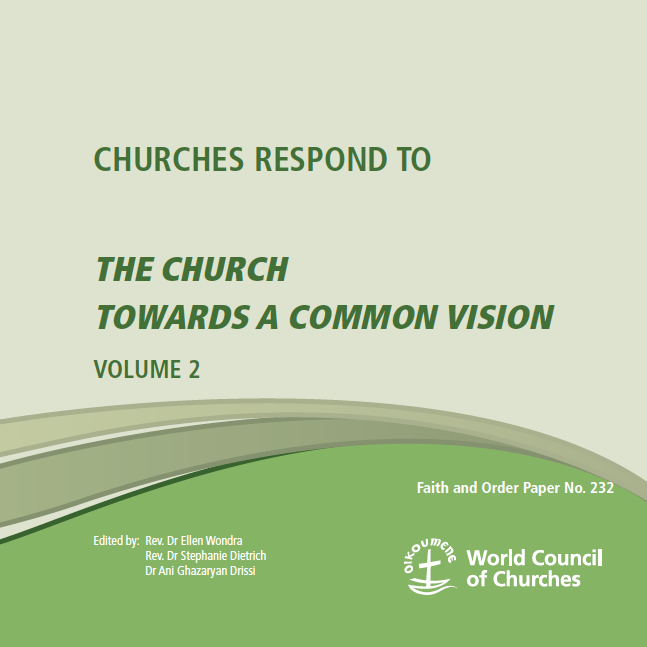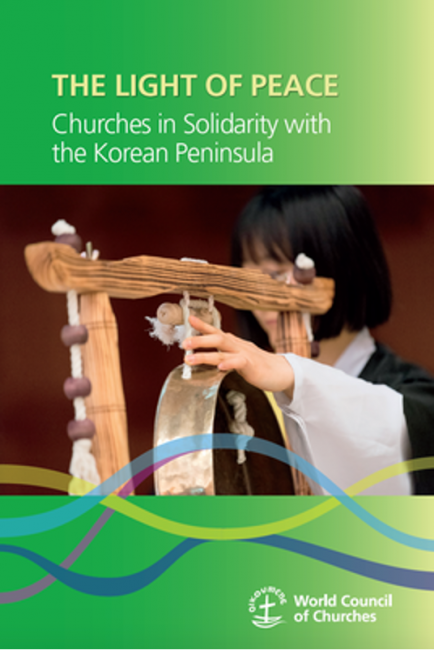Displaying 1 - 20 of 31
Toward the Sixth World Conference on Faith and Order
Commemorating the Council of Nicaea: Where Now for Visible Unity?
24 February 2024
Towards a Global Vision of the Church Volume I
Explorations on Global Christianity and Ecclesiology, Faith and Order Paper 234
14 November 2022
Strengthening Christian Perspectives on Human Dignity and Human Rights
Perspectives from an International Consultative Process
19 August 2022
Common Threads
Key Themes from Responses to The Church: Towards a Common Vision. Faith and Order Paper No 233
25 February 2022
WCC video interview describes human rights crisis in West Papua
13 January 2022
What Are the Churches Saying About the Church?
Key Findings and Proposals from the Responses to The Church: Towards a Common Vision
21 June 2021
Churches Respond To The Church: Towards A Common Vision Volume I
Faith and Order Paper No. 231
23 February 2021
Churches Respond To the Church: Towards a Common Vision Volume II
Faith and Order Paper No. 232
23 February 2021
Love and Witness
Proclaiming the Peace of the Lord Jesus Christ in a Religiously Plural World
18 January 2021

